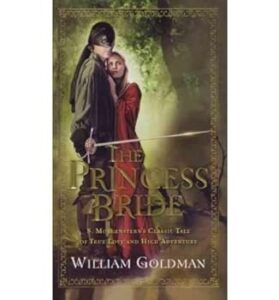 Takeaway: The classic 1973 book, which was made into the 1987 movie, is still worth reading.
Takeaway: The classic 1973 book, which was made into the 1987 movie, is still worth reading.
Like most of my generation and later, I was introduced to the movie before the book. The book was written the year I was born. And the movie came out when I was 14. So, the characters have always been the movie characters in my head.
I first read the book pretty soon after the movie came out. I expected a movie novelization, but while the movie was closely based on the book, it was clearly not a novelization. I remember it as a book where I literally laughed out loud often at the time.
I have not read it since but have maintained my appreciation of the book and movie. I usually watch at least a few minutes of the movie every time I notice it is on TV.
I do not always want to re-read books that I have fond memories of. I have re-read too many books that do not hold up on a second or third reading, a decade or two later. That is probably true here, although I still really enjoyed the book (it just felt a bit too long.)
The book jokes that it is an abridgment of a classic novel and William Goldman puts himself into the book and makes lots of comments about why he is abridging a section. But also the “˜original author’ S Morgenstern also is continually making aside comments as well.

 Summary: The world has devolved into perpetual war between the clayarks and the patternists. A young patternist must find his way and try to avoid getting killed by either group.
Summary: The world has devolved into perpetual war between the clayarks and the patternists. A young patternist must find his way and try to avoid getting killed by either group. Summary: A human starship has returned from its first visit to another star system, but it did not come back alone.
Summary: A human starship has returned from its first visit to another star system, but it did not come back alone. Summary: The subject of Doro’s breeding program, after several thousand years, comes of age.
Summary: The subject of Doro’s breeding program, after several thousand years, comes of age.
 Summary: Lord Peter Wimsey overhears a doctor talking about a case and is convinced it is the perfect crime.
Summary: Lord Peter Wimsey overhears a doctor talking about a case and is convinced it is the perfect crime.
 Often times when life throws us a curve ball, out natural tendency is to find some corner somewhere, cry in cup of coffee, and sing our favorite verse of poor, poor me. But what if we drew a deep breath, stepped back, and considered for a minute how we could use this opportunity to make a positive change of direction in our lives?
Often times when life throws us a curve ball, out natural tendency is to find some corner somewhere, cry in cup of coffee, and sing our favorite verse of poor, poor me. But what if we drew a deep breath, stepped back, and considered for a minute how we could use this opportunity to make a positive change of direction in our lives?